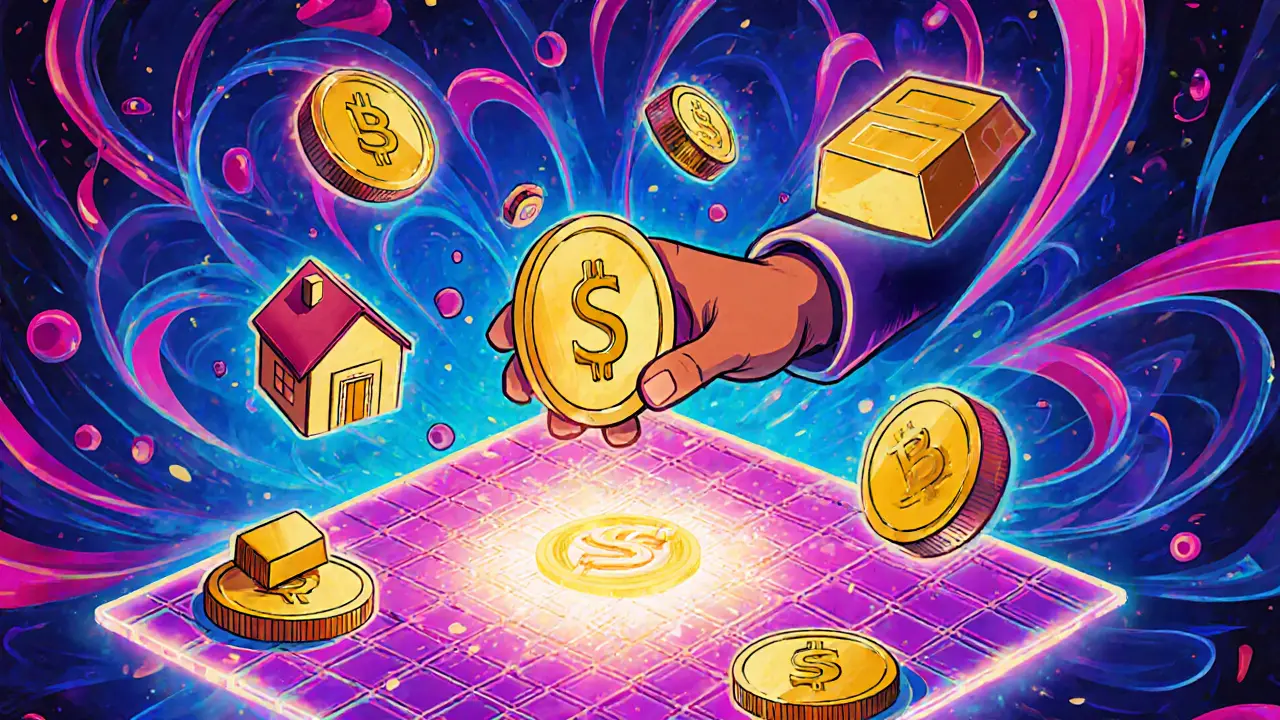RWA Blockchain: How Real-World Assets Are Being Tokenized on Chain
When you hear RWA blockchain, the use of blockchain to represent ownership of physical assets like real estate, bonds, or gold in digital form. Also known as real-world asset tokenization, it’s not about speculation—it’s about unlocking trillions in idle value by making assets easier to buy, sell, and divide. This isn’t science fiction. In October 2025, the market for tokenized real-world assets hit $34.86 billion, mostly driven by institutional players like BlackRock with their BUIDL token, which turns U.S. Treasuries into on-chain assets you can trade like crypto.
RWA blockchain isn’t replacing Bitcoin or Ethereum. It’s using them as infrastructure. Think of it like putting a house on a digital deed. Instead of dealing with lawyers, title companies, and paperwork, you own a token that represents a share of that property. This opens up access to assets that were once locked up for the ultra-rich. A farmer in Kenya can now invest in a slice of a New York apartment. A pension fund in Germany can buy tokenized private credit from a startup in Mexico—all without crossing borders or waiting weeks for settlement.
But it’s not all smooth sailing. Countries like Qatar ban regular crypto but allow tokenized real-world assets, showing how regulators are trying to separate gambling from utility. Meanwhile, the EU’s MiCA rules are forcing crypto businesses to prove they’re not laundering money through these new assets. That’s why compliance tools and AML checks are now part of every RWA platform. You can’t just mint a token for a building—you need legal proof, identity verification, and audit trails built in.
The biggest shift? Real money is moving in. Hedge funds, banks, and even sovereign wealth funds are dumping cash into tokenized gold, commercial real estate, and government bonds—not because they love crypto, but because it’s faster, cheaper, and more transparent than legacy systems. And that’s why you’re seeing projects like Ekta and BlackRock’s BUIDL leading the charge, not memecoins.
What you’ll find below aren’t hype pieces. These are hard-hitting breakdowns of who’s doing what, where it’s legal, what’s actually working, and what’s just a fake token with a fancy name. From the $34 billion market size to Qatar’s odd loophole, from regulatory traps to the real projects gaining traction—this collection cuts through the noise. You won’t find fluff. Just facts, data, and what matters for your next move in this new financial layer.
What is Allo (RWA) crypto coin? Real-World Asset Tokenization Explained
Allo (RWA) is a blockchain protocol that tokenizes real-world assets like real estate and stocks, letting users trade them as crypto tokens. It's the first platform to combine Bitcoin staking with asset-backed finance, offering zero-fee trading and 1:1 physical backing.
